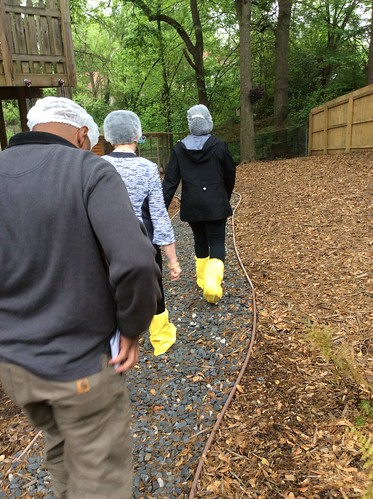
During a walk along tree-shading sidewalks in the “burbs”; you’re accustomed to seeing games of hopscotch, bike rides, and maybe even the occasional Golden Retriever. However, one residential backyard, nearly 6 miles from downtown Atlanta, calls into question whether this is suburbia at all. There were swings, a tree house, and even patio furniture. Yet one feature certified this was not your mother’s suburban home: over a dozen chickens living comfortably in a custom made “Coop de Ville.”
The rise of “backyard poultry” is one of many agricultural phenomena tied to a growing food consciousness and increased urbanization. And while USDA’s fundamental job doesn’t change, the Department does because the challenges do. The recent cases of Highly Pathogenic Avian Influenza (HPAI) at increasingly popular backyard chicken coops underscore this. While this concern was not clearly expressed in the 1862 Act of Congress that created the Department, the mandate was. USDA still works to “acquire and to diffuse…information” towards facilitating the protected growth of American agriculture. That service is what brought Research, Education, and Economics Undersecretary Dr. Catherine Woteki to this residence in Decatur, GA. Accompanied by Animal and Plant Health Inspection Service officials and a man known best as the “Chicken Whisperer,” Dr. Woteki toured the site and helped to shed light on current HPAI research and important biosafety measures.
The mission was similar in Atlanta. Speaking to a room of over 1,700 attendees at the Center for Disease Control’s Annual Preparedness Summit, Dr. Woteki highlighted USDA’s participation in the Global Health Security Agenda as well as the Department’s ongoing efforts to identify and respond to current and emerging agricultural threats. A vital part of getting the word out is meeting people where they are. With about 52.9 million users in the U.S., Twitter presents an amazing new platform to do just that. Dr. Woteki took to the “tweets,” in a collaborative chat including other Federal agencies and the Georgia Department of Agriculture to educate folks across the country about how to protect poultry.

With some calling it the “poultry capital” of the world, Georgia was a great place to highlight the importance of education in combating biosecurity issues. By utilizing the tools of the times Dr. Woteki, and the USDA team at large, continues to meet new challenges with even newer solutions.




